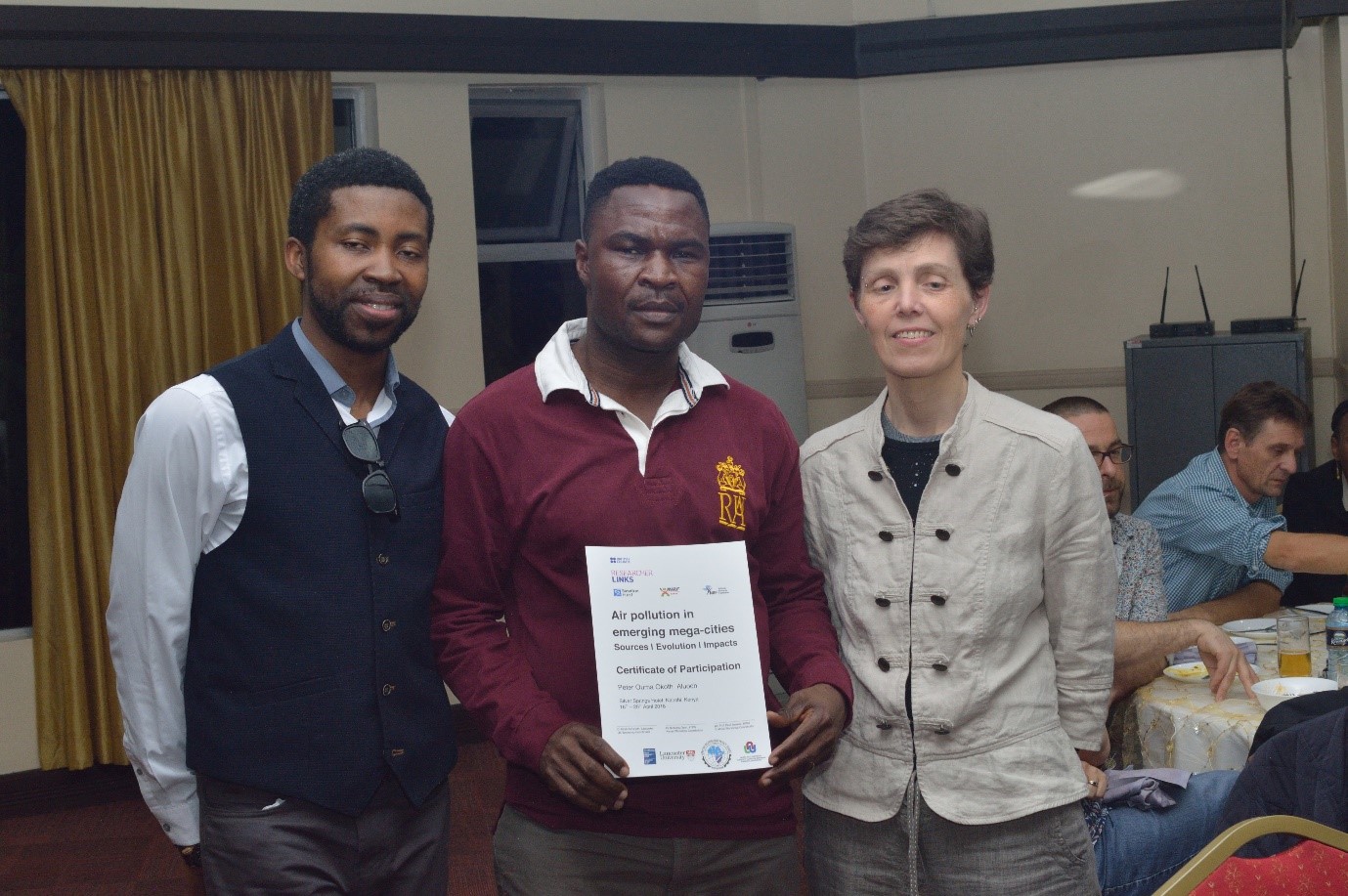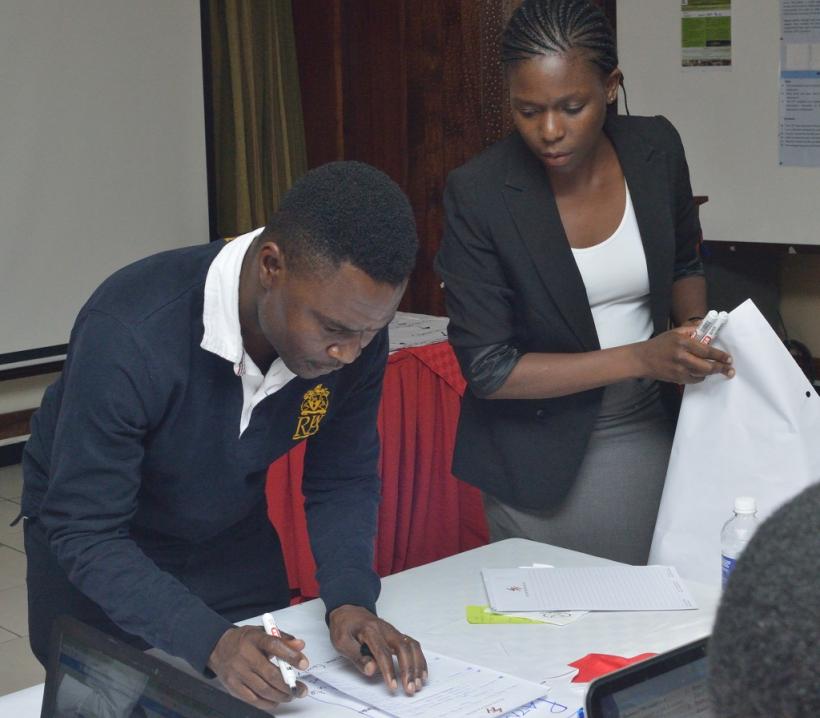RAU student Peter Okoth wins second place for his presentation at a British Council's Researchers Workshop

16 May 2018
Peter Okoth, who is studying for a Masters in Sustainable Agriculture and Food Security and is a Marshal Papworth Fellow, recently secured a place on a prestigious post-doctoral training course - British Council's Newton Fund Early Researchers Workshop (ECR 2018) in Kenya. Peter won second place for his research poster on “Mitigation practices to reduce Greenhouse Gas emissions from Urban and Per-urban Agriculture”. The theme of the workshop was “Air pollution in Emerging Mega-Cities: Sources, Evolution and Impacts”.

The program required participants to share the outputs of the workshop with the sponsors and networks. Peter's summary can be read below.
- Air pollution sources are classified as both indoor and outdoor, and include agriculture, transportation, industry and domestic; these threaten human health, agriculture and climate, and therefore immediate actions are needed to reduce air pollution.
- The atmospheric research community needs to address the growing issue of air pollution, climate change and their impacts on society in and around emerging mega-cities; Africa experiences two major challenges in tackling air pollution: lack of Air Quality (AQ) data; and lack of sustainable AQ policy. Many deaths that occur because of air pollution go unnoticed/unrecorded especially in the upcoming mega-cities of Africa and South East Asia.
- We gained awareness of the need for transdisciplinary co-produced research to holistically tackle the challenges of the UN Sustainable Development Goals. Agriculture suffers from air pollution with reduced light intensity, varying average temperature, low relative humidity and particulate deposits. This leads to low crop yields and reduced animal performance which affects regional food production and food security.
- The workshop facilitated cross-boundary networking and identified common experience on which to build future collaborative partnerships with fellow ECRs, established scientists, policy makers and stakeholders. There is a need for interdisciplinary research on Air Quality monitoring and modeling with relevant policies, and integration of Air Pollution in different interventions in Africa.
- To address AQ in Africa, there is a need for collaborative efforts between the Government, Academia, Industry and Civil Society groups to discuss and commit to finding solutions.
Nicola Cannon, Director of the African Fellowship Program, said of Peter's achievement "the African Fellowship attracts some of Africa's finest talent and it is great to see that Peter has been successful in securing further opportunities through the British Council".